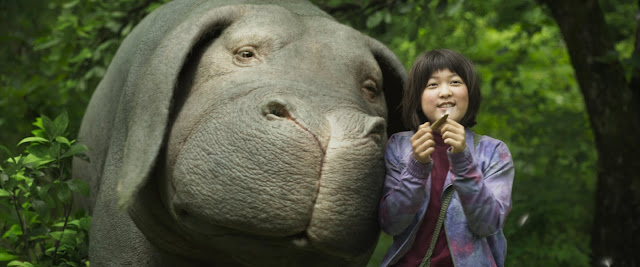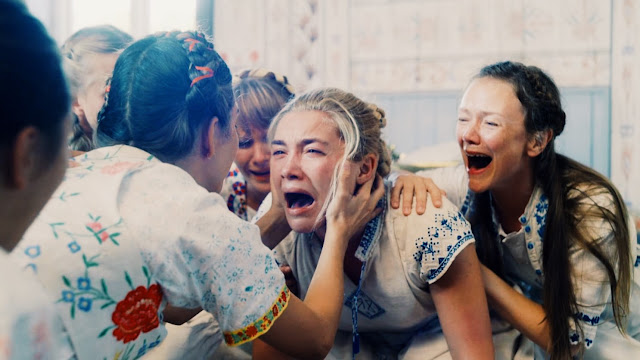La Jetee (1962)
CLASSIC FILM REVIEW #10
Back to the Past - an analysis of La Jetee
La Jette is a strange short film, that many are familiar to the fact that it inspired the Terry Gilliam film 12 Monkeys. It centers on the hypothetical aftermath of World War III. It is assumed that the world had been scorched by nuclear weaponry, as we see a young man strapped down and blindfolded by a group of ominous scientists in an underground refuge. What the man is being subjected to is a time machine that sends him back to the time, and his mission is to collect goods, and send them back to the present day in order to feed the survivors of the war. He is sent back to the near moment when his life ended, and all he remembers seeing is a strikingly beautiful young woman, standing over a pier while an unknown man falls to his death. Instead of following orders, the man stalks the female throughout the city of Paris, in order to figure out why he remembers her, and what significance she has to him before the bomb hit. What happens is quite lovely actually. You see, the man begins to talk to the young woman, and they begin a pleasant Parisian love affair. Needless to say, this makes the underground scientists none too pleased. For several times over, the scientists keep sending the man back to the beginning of the time warp in order to complete the mission, only for the man to keep pursuing the young lady every time. The two inter-dimensional lovebirds even manage to squeeze in a museum visit, where they gaze at the wonders of the animal kingdom. Hey, even in a time warp, you have to stop and smell the roses. After many attempts, the scientists play a trick and send the young man to a strange, scary future that warns him of the consequences of a malnourished society. The people where black clothing, and stare deeply into his eyes. Do you think that would scare him into doing the right thing? Of course not! He's got to get the girl. Angry about his failure, the scientists bring him back to the past, to meet the girl, only to have him assassinated by another time traveler. In the end, he suffered the exact same fate as the man he saw before the war. He was the fallen man from his own past.

All this is shown in glorious frames per second… no not 24, just frames. Like a slideshow gone horribly wrong, the story progresses through images, which coincide with the fact that Marker himself is an acclaimed photographer. Does it even matter in the end? Not for me. I was deeply invested in every moment of this great short film. As a matter of fact, in the genre of Science Fiction, I don't think I've ever seen a finer film. Marker masterfully places fear in the hearts of his viewers. Whatever future we have to look forward to, it looks awfully bleak for Marker. There is nothing to look forward to, but the imminent arrival of a nuclear holocaust. As with many films in tune with "Nouvelle Vague", the politics are visibly liberal. La Jette is an early anti-war picture. In the wake of WWII, and the arms race happening in Europe, Marker constructed a film that allowed us to think about the social and physical implications of nuclear war. In the process, he allows an intimate look at the past, and how our main character, keeps trying to hang onto it as long as he can, for tomorrow is hopeless. The woman he seeks is in itself, a metaphor for peace and good memories. Good memories are precious, and beautiful, and visceral. When you think about good memories, you want to plant yourself back in time and relive them. We sympathize with our main character, and we feel for him when he dies in the end. I believe the moral of it all is to remember what thrived before, and try to prevent what this film tried to envision for our future, which consists of nothing.
Back to the Past - an analysis of La Jetee
La Jette is a strange short film, that many are familiar to the fact that it inspired the Terry Gilliam film 12 Monkeys. It centers on the hypothetical aftermath of World War III. It is assumed that the world had been scorched by nuclear weaponry, as we see a young man strapped down and blindfolded by a group of ominous scientists in an underground refuge. What the man is being subjected to is a time machine that sends him back to the time, and his mission is to collect goods, and send them back to the present day in order to feed the survivors of the war. He is sent back to the near moment when his life ended, and all he remembers seeing is a strikingly beautiful young woman, standing over a pier while an unknown man falls to his death. Instead of following orders, the man stalks the female throughout the city of Paris, in order to figure out why he remembers her, and what significance she has to him before the bomb hit. What happens is quite lovely actually. You see, the man begins to talk to the young woman, and they begin a pleasant Parisian love affair. Needless to say, this makes the underground scientists none too pleased. For several times over, the scientists keep sending the man back to the beginning of the time warp in order to complete the mission, only for the man to keep pursuing the young lady every time. The two inter-dimensional lovebirds even manage to squeeze in a museum visit, where they gaze at the wonders of the animal kingdom. Hey, even in a time warp, you have to stop and smell the roses. After many attempts, the scientists play a trick and send the young man to a strange, scary future that warns him of the consequences of a malnourished society. The people where black clothing, and stare deeply into his eyes. Do you think that would scare him into doing the right thing? Of course not! He's got to get the girl. Angry about his failure, the scientists bring him back to the past, to meet the girl, only to have him assassinated by another time traveler. In the end, he suffered the exact same fate as the man he saw before the war. He was the fallen man from his own past.

All this is shown in glorious frames per second… no not 24, just frames. Like a slideshow gone horribly wrong, the story progresses through images, which coincide with the fact that Marker himself is an acclaimed photographer. Does it even matter in the end? Not for me. I was deeply invested in every moment of this great short film. As a matter of fact, in the genre of Science Fiction, I don't think I've ever seen a finer film. Marker masterfully places fear in the hearts of his viewers. Whatever future we have to look forward to, it looks awfully bleak for Marker. There is nothing to look forward to, but the imminent arrival of a nuclear holocaust. As with many films in tune with "Nouvelle Vague", the politics are visibly liberal. La Jette is an early anti-war picture. In the wake of WWII, and the arms race happening in Europe, Marker constructed a film that allowed us to think about the social and physical implications of nuclear war. In the process, he allows an intimate look at the past, and how our main character, keeps trying to hang onto it as long as he can, for tomorrow is hopeless. The woman he seeks is in itself, a metaphor for peace and good memories. Good memories are precious, and beautiful, and visceral. When you think about good memories, you want to plant yourself back in time and relive them. We sympathize with our main character, and we feel for him when he dies in the end. I believe the moral of it all is to remember what thrived before, and try to prevent what this film tried to envision for our future, which consists of nothing.




Comments
Post a Comment